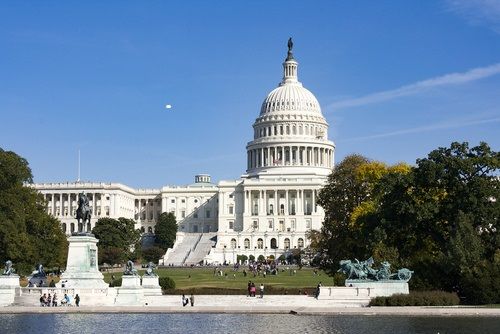Article
Senate Health Bill Offers $202 Billion More in Savings Than House Bill, CBO Finds
Author(s):
An estimated 22 million more people would lose health coverage through 2026, which is 1 million less than the 23 million estimated under the American Health Care Act (AHCA).

The Senate bill to replace the Affordable Care Act (ACA) would offer $202 billion more in deficit reduction than the House version, with slightly fewer people becoming uninsured over the next decade than under current law, according to an estimate from the Congressional Budget Office (CBO).
An estimated 22 million more people would lose health coverage through 2026, which is 1 million less than the 23 million estimated under the American Health Care Act (AHCA) that passed the House May 4, 2017, and 2 million less than the 24 million foreseen under the original version of the House bill.
The most recent CBO report comes as Senate leaders are working to get enough votes for the Better Care Reconciliation Act of 2017, which has several key differences from final version of the AHCA. Senate leaders hope to schedule a floor vote before the upcoming July 4th recess.
Staff of CBO and the Joint Committee on Taxation found that the Senate legislation would reduce the federal deficit by $321 billion for the period between 2017-2026, substantially more than the amount of estimated savings offered by the AHCA.
The CBO report released Monday finds that 15 million more people would be uninsured in 2018 than under current law, largely because penalties for not having coverage would go away. In later years, reduced spending on Medicaid and shrinking subsidies to help people buy coverage in the individual market would cause more people to drop out of the market.
By 2026, the report states, Medicaid enrollment among those under age 65 would fall by 16%, and an estimated 49 people would be uninsured, compared with about 28 million would be uninsured that year based on current law. That net difference of 21 million would be the same as the estimated number of Americans who originally gained coverage under the ACA.
A table within the report states that Medicaid spending would be reduced by $772 billion over the next decade, due to the reduction of enhanced federal matching funds and the start of a per capita cap. CBO predicted that Medicaid spending would be reduced by nearly $880 billion over the next decade in the House bill, which calls for a more rapid phaseout of Medicaid expansion in states that elected to extend that option to those earning up to 138% of the federal poverty level.
This story was orignally published in our sister publication, The American Journal of Managed Care.

Study Compares ChatGPT-4 Diagnostic Abilities to Teledermatologists




